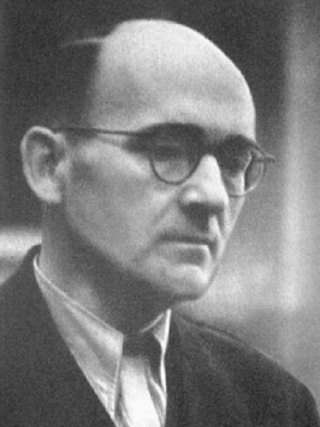Top Qs
Timeline
Chat
Perspective
Bernhard Letterhaus
From Wikipedia, the free encyclopedia
Remove ads
Bernhard Letterhaus (10 July 1894, Barmen – 14 November 1944) was a German Catholic Trade Unionist and member of the resistance to Nazism.[1]


He grew up in Barmen, Wuppertal, and after an apprenticeship in a textile factory, he was an active member of the Association of Christian textile workers.[2] He served in World War I and was then secretary of the Catholic Labour Movement in Mönchengladbach. He moved to Cologne where he was in contact with Nikolaus Gross, a fellow Catholic opponent of the Nazis.
In 1930, he became vice president of the 69th Catholic Congress in Münster.[2]
He was conscripted into the Wehrmacht upon the outbreak of World War II.[3] Upon posting to the OKW in Berlin he developed contacts with the 20 July plot conspirators including Carl Goerdeler's group. If the attempt to assassinate Hitler had succeeded he was earmarked to be the Reconstruction Minister. He was arrested in its aftermath, tried by the People's Court, sentenced to death by Roland Freisler and executed at Plötzensee Prison the next day.
A street in the Hardtberg district of Bonn is named after him.[4]
The Bernhard Letterhaus Catholic Youth Residence in Cologne is also named after him.[5]
Remove ads
References
Further reading
External links
Wikiwand - on
Seamless Wikipedia browsing. On steroids.
Remove ads
